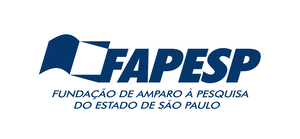Use este identificador para citar ou acessar este item:
https://doi.org/10.25824/redu/CAVFDT| DOI: | https://doi.org/10.25824/redu/CAVFDT |
| Título: | A hybrid matheuristic for the spread of influence on social networks - complementary data |
| Assunto: | Computer and Information Science |
| Descrição: | This dataset contains complementary data to the paper "A Hybrid Matheuristic for the Spread of Influence on Social Networks" [1], which proposes a matheuristic for combinatorial optimization problems involving the spread of information in social networks. For the computational experiments discussed in that paper, we provide: - Two sets of instances, originally obtained from [2-6]; - The solutions attained by exact and heuristic methods; - The collected results; - The matheuristic source code; The directories "benchmark_*/instances/" contain files that describe the sets of instances. Each instance is associated with a graph containing {n} vertices and {m} edges. The first {m} lines of each file contain: {u} {v} where {u} and {v} identify a pair of vertices that determines an undirected edge. The next line contains {n} integers corresponding to the costs of the vertices. The last line contains {n} integers corresponding to the thresholds of the vertices. The directories "benchmark_*/solutions_*/" contain files describing feasible solutions for the corresponding sets of instances. The first line of each file contains: {s} where {s} is the number of vertices in the target set. Each of the next {s} lines contains: {v} where {v} identifies a target. The last line contains an integer that represents the target set cost. The directory "hmf_source_code/" contains an implementation of the matheuristic framework proposed in [1], namely, HMF. This work was supported by grants from Santander Bank, the Brazilian National Council for Scientific and Technological Development (CNPq), the São Paulo Research Foundation (FAPESP), the Fund for Support to Teaching, Research and Outreach Activities (FAEPEX), and the Coordination for the Improvement of Higher Education Personnel (CAPES), all in Brazil. Caveat: The opinions, hypotheses and conclusions or recommendations expressed in this material are the sole responsibility of the authors and do not necessarily reflect the views of Santander, CNPq, FAPESP, FAEPEX, or CAPES. References [1] F. C. Pereira, P. J. de Rezende, and T. Yunes. A Hybrid Matheuristic for the Spread of Influence on Social Networks. 2024. Submitted. [2] S. Raghavan and R. Zhang. A branch-and-cut approach for the weighted target set selection problem on social networks. 2024. https://doi.org/10.1287/ijoo.2019.0012 [3] J. Leskovec and A. Krevl. SNAP Datasets: Stanford Large Network Dataset Collection. 2024. https://snap.stanford.edu/data [4] R. A. Rossi and N. K. Ahmed. The Network Data Repository with Interactive Graph Analytics and Visualization. 2022. https://networkrepository.com [5] J. Kunegis. KONECT – The Koblenz Network Collection. 2013. http://dl.acm.org/citation.cfm?id=2488173 [6] O. Lesser, L. Tenenboim-Chekina, L. Rokach, and Y. Elovici. Intruder or Welcome Friend: Inferring Group Membership in Online Social Networks. 2013. https://doi.org/10.1007/978-3-642-37210-0_40 |
| Autor(es): | Pereira, Felipe de Carvalho Rezende, Pedro Jussieu de Yunes, Tallys Hoover |
| URI: | https://doi.org/10.25824/redu/CAVFDT https://redu.unicamp.br/dataset.xhtml?persistentId=doi:10.25824/redu/CAVFDT |
| Outros identificadores: | |
| Fomento: | Conselho Nacional de Desenvolvimento Científico e Tecnológico Conselho Nacional de Desenvolvimento Científico e Tecnológico Fundação de Amparo à Pesquisa do Estado de São Paulo Fundação de Amparo à Pesquisa do Estado de São Paulo Coordenação de Aperfeiçoamento de Pessoal de Nível Superior |
| Número do Projeto: | CNPQ: 313329/2020-6 CNPQ: 314293/2023-0 FAPESP: 2023/04318-7 FAPESP: 2023/14427-8 CAPES |
| Termo de uso: | |
| Data: | 11-Nov-2024 |
| Data de Disponibilização: | 13-Nov-2024 |
| Formato: | |
| Tipo: | |
| Editora / Evento / Instituição: | Pereira, Felipe de Carvalho |
| Idioma : | |
| Aparece nas coleções: | Repositório de Dados de Pesquisa da UNICAMP |
Os itens no repositório estão protegidos por copyright, com todos os direitos reservados, salvo quando é indicado o contrário.
